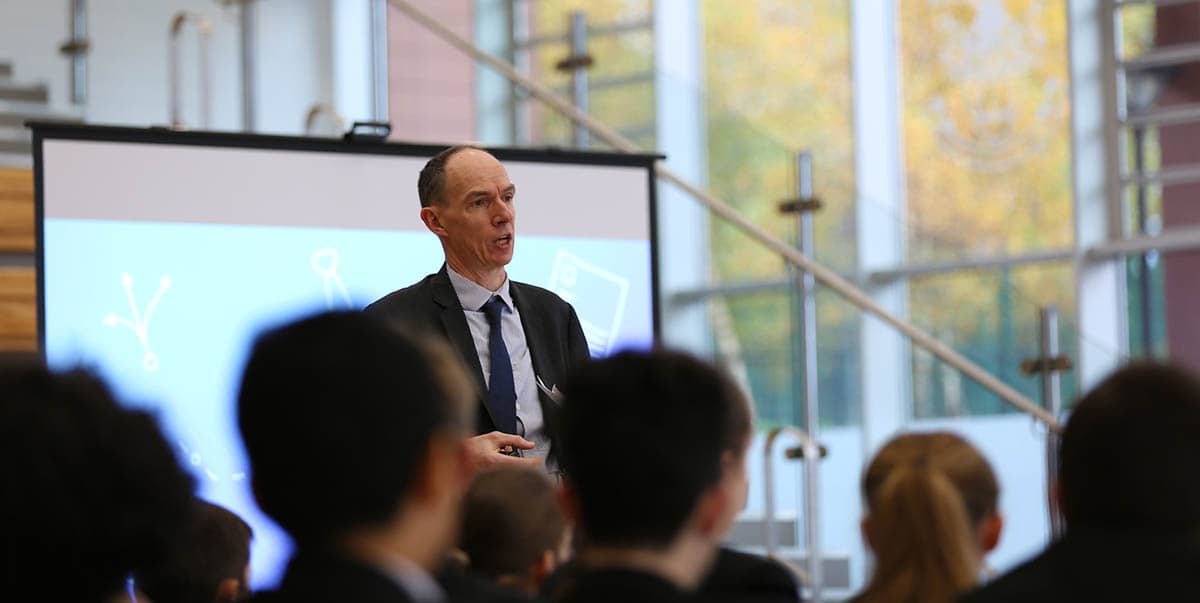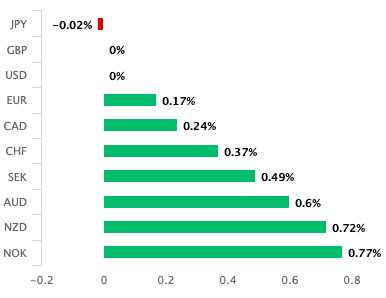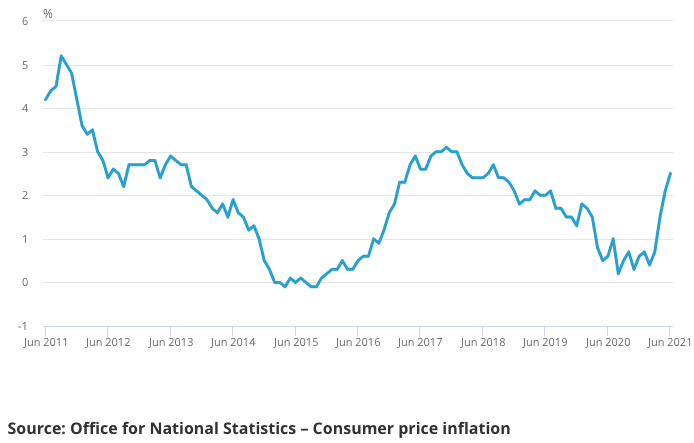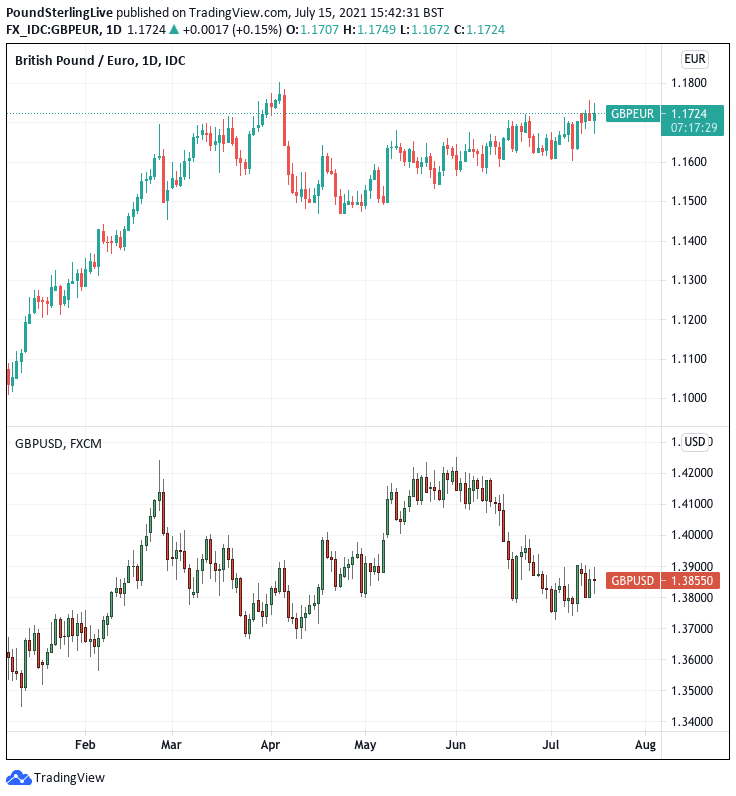Pound has Scope to Rise as Bank of England "Adopts a Less Dovish Stance" say Analysts
- Written by: Gary Howes
- Interest rate rise likely in H2 2022
- "GBP has scope to edge higher" - CBA
- "GBP could outperform on crosses" - Morgan Stanley

Image © Bank of England
- Market rates at publication: GBP/EUR: 1.1740 | GBP/USD: 1.3890
- Bank transfer rates: 1.1512 | 1.3600
- Specialist transfer rates: 1.1660 | 1.3790
- Get a bank-beating exchange rate quote, here
- Set an exchange rate alert, here
The British Pound is being tipped to remain supported over coming days and weeks amidst signals that the Bank of England is now preparing the market for an interest rate rise in the first half of 2022.
The Pound rallied in the wake of a speech by Bank of England Monetary Policy Committee (MPC) member Michael Saunders in which he said inflation could prove stubbornly high for years to come.
As such, the case for an interest rate rise was becoming increasingly justifiable he said.
"Even once effects from energy prices fade, the closing output gap and possibility of some persistent effects from global cost pressures point to risks that, with the current policy stance, CPI inflation will remain above the 2% target 2-3 years ahead," said Saunders.
This marks a significant departure from the Bank's long-held view that inflation would ultimately trend back towards, and even below, the 2.0% target.
"Central banks often use such speeches to fine tune guidance and prepare markets for a policy change, the speech suggests that the BoE will at least discuss at their next meeting on 5 August whether to end net asset purchases early instead of in December," says Kallum Pickering, Senior Economist at Berenberg Bank.

Above: GBP rose against the majority of its peers in the wake of the speech.
Secure a retail exchange rate that is between 3-5% stronger than offered by leading banks, learn more.
Saunders' speech was made just 24 hours after that of his colleague on the MPC Dave Ramsden, where a similar argument was made.
"Based on the rapid pace of developments since we published our May forecasts and the shift in the balance of risks, I can envisage those conditions for considering tightening being met somewhat sooner than I had previously expected," said Ramsden.
Ramsden said inflation was likely to peak at 4.0% which is substantially higher than existing Bank forecasts for a peak at 3.0%.
The developments suggest the Bank of England is likely to be a member of the first group of developed market central banks to raise interest rates in the upcoming cycle, a position that is supportive of the Pound according to currency analysts.
"GBP has scope to edge higher, mostly against EUR, because the risk the Bank of England adopts a less dovish stance as soon as the 5 August MPC meeting has increased," says Elias Haddad, Senior Currency Strategist at Commonwealth Bank of Australia.
The Bank has communicated up until now that it expects the current bout of inflation to be temporary as it largely results from bottlenecks in global economic activity caused by the Covid disruptions of 2020.
When these bottlenecks fade and the impact of commodity prices settle back it is argued inflation will follow suit.
But, some economists, including the Bank's former Chief Economist Andy Haldane, warn that some aspects of the current inflation spike simply won't just fade.
Saunders agrees and said the Bank must respond.
"It may become appropriate fairly soon to withdraw some of the current monetary stimulus in order to return inflation to the 2% target on a sustained basis. In this case, options might include curtailing the current asset purchase program – ending it in the next month or two and before the full £150bn has been purchased – and/or further monetary policy action next year," said Saunders.
The ending of the quantitative easing programme before December is potentially the most notable surprise of the speech as the market had been expecting the programme to run its entirety.
"The BoE remains one of the hawkish central banks in the G10, meaning GBP could outperform on crosses," says Sheenah Shah, an analyst with Morgan Stanley.
As a result of the two speeches money markets are now pricing in the first interest rate of the upcoming cycle occurring in the first half of 2022.
The march forward in the timing of that potential first hike has been supportive of the Pound which rose against the Euro, Dollar and a host of other currencies following the Saunders speech.
"The risks are titled towards the BoE element becoming a bit more supportive for the GBP," says Stephen Gallo, European Head of FX Strategy at BMO Capital.
{wbamp-hide start}
{wbamp-hide end}{wbamp-show start}{wbamp-show end}
The Pound-to-Euro exchange rate (GBP/EUR) rose from a daily low of 1.1668 to record a high at 1.1749.
The Pound-to-Dollar exchange rate (GBP/USD) recorded a low at 1.3813 and a high at 1.3898.
"The hawkish comments from Saunders and those from Ramsden the day before have led to some speculation that the August MPC meeting could be a live one. However, I don’t think the BoE will move that soon to end asset purchases, but it could nevertheless prepare the market for tapering in the months ahead," says Fawad Razaqzada, Market Analyst at ThinkMarkets.
The two speeches out of the Bank of England come in the same week that it was reported by the ONS that inflation in the UK rose 2.5% year-on-year in June, which is greater than the 2.2% forecast by the market and the 2.1% reported in May.
"Given recent upside surprises to inflation, building pressure in the labour market and the outlook for continued strong growth even after the economy reaches its pre-pandemic level of output, ending the stimulus early would be the correct course of action," says Pickering.
He says Bernberg's call for a first rate hike in August 2022 are skewed towards an even earlier hike courtesy of the hawkish tilt by Saunders.

The Bank of England will feel will feel more emboldened to raise interest rates not just on the back of recent inflation data, but also on employment market data which shows a trend of strong improvement.
Data out Thursday showed that the UK continued to add jobs while wages rose a staggering 7.3% in May.
The market was looking for 90K jobs to be created in the three months to June, meaning the actual figure of 25K disappointed against market expectations somewhat.
But Sandra Horsfield, an economist at Investec, points out that the timelier measure of employment in HMRC’s Real-Time Information PAYE data, which captures all payrolled employees rather than being based on a survey scaled up by population estimates, "reported a rip-roaring monthly net rise of 356k (+1.3%) in June".
This is after an already eye-watering gain of 212k (+0.7%) in May, she adds.
"To put this into context, scaled up to US levels, these would be equivalent to 1.8m and 1.1m monthly gains in US payrolls," says Horsfield.
With employment recovering the so-called slack that holds the Bank of England back from raising interest rates is fast diminishing.
"We interpret today’s (employment) report as indicative of a very strong acceleration in the pace of recovery in the labour market, which should underpin confidence and spending going forward, and seems to hint at a solid expansion in GDP in Q2," says Horsfield.






